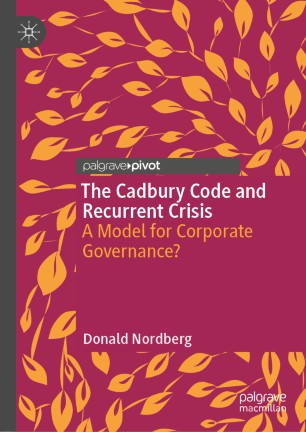… dealing with two lines of inquiry.
The first deals with writing. Book reviews, comments on long-format television drama and other writing – and my own writing. It’s called Don Nordberg (is/on) writing:

It builds on my long interest in literature, my (new, second) PhD from the University of Exeter, and the fiction and other writing I plan to publish.
The second deals with governance, corporate and otherwise. It’s called:

It builds on longstanding interests in politics, organizations and ethics and my (older, first) PhD from the University of Liverpool, as well as my continuing work on the boards of two large charities, one in social care, the other in the performing arts.
Both contain short analyses with links to further materials online. Subscribe! They’re free. You’ll get updates about one a week. Both are open to comments and debates.



